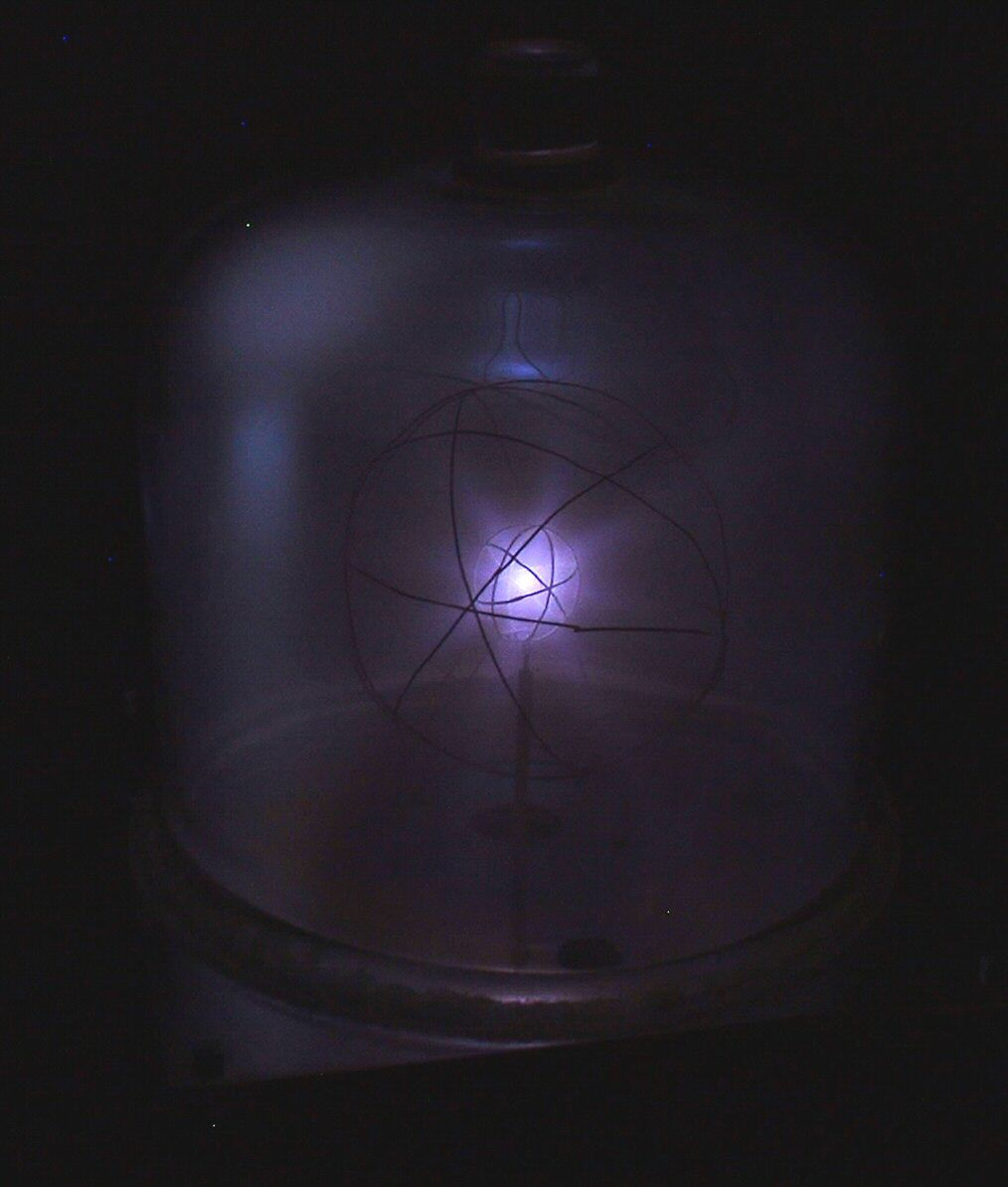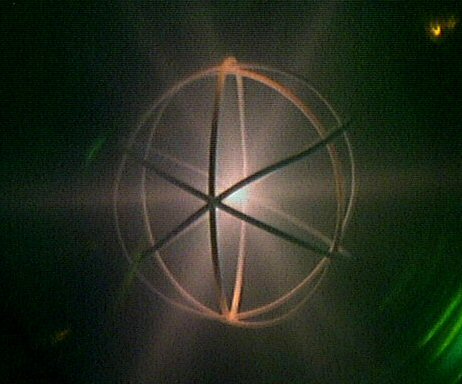 |
 |
 |
 |
 |
 |
 |
 |
 |
 |
 |
 |
 |
 |
 |
 |
 |
 |
 |
 |
 |
 |
 |
 |
 |
 |
 |
 |
 |
 |
 |
 |
 |
 |
 |
 |
 |
 |
 |
 |
 |
 |
 |
 |
 |
 |
 |
 |
 |
 |
 |
|
|
THE HAYLETT
NUCLEAR FUSION PROJECT |
|
|
|
 |
|
|
|
In the spring of 2005,
Alex Haylett became fascinated with the work of Philo T
Farnsworth, Gene Meeks and Robert L. Hersche in developing
the Inertial Electrostatic Confinement Fusion Reactor. This type of
reactor was dubbed a "fusor" by Farnsworth, and the name has stuck.
Arguably, it is the only type of fusion reactor within the capabilities
of the amateur science experimenter.
An enthusiastic group of amateurs continues to experiment with fusors,
and Alex, with the assistance of his father Ben Haylett, is
proud to be joining their ranks. Information about the group of
amateurs experimenting with nuclear fusion can be found on the fusor.net website.
An unofficial division exists between those amateurs actually carrrying
out nuclear fusion, and those who have stopped at the Demonstration
Fusor stage. In September, 2005, Alex and Ben successfully operated
their Demonstration Fusor for the first time in the Haylett garage.
Fusion was successfully
demonstrated for the first time by Alex & Ben on July 22, 2007!
The Deuterium used was obtained from the electrolysis of heavy water -
believed to be the first time that this source has been used
successfully by an amateur.
Alex is currently a high school student, and his father Ben is an
avionics instructor. Both live in Calgary, Alberta, Canada.
They are believed to be the 23rd amateur individual or team to achieve
fusion, and the first in Western Canada.
For a
list of amateurs who have successfully demonstrated nuclear fusion, see here.
(Scroll down to: 3. "TheNeutron Club"). |
|
|
|
|
Above: The first fusor built
by Alex and Ben was a Demonstration Fusor, shown operating at about 8500
volts and 5 or 6 milliamperes. |
|
|
|
|
|
 |
|
|
|
|
|
|
Above: Our
current fusor, shown performing D-D fusion at
around 26,000 volts and 8 milliamperes, and producing around 25,000
high energy neutrons/sec. (Approximately 50,000 D-D fusion events are
occurring per second. About half destroy the two deuterium
atoms, create an atom of Tritium, and release a 3.02 MeV
proton. The other half destroy the two deuterium atoms, create an atom
of Helium 3, and release a 2.45 MeV neutron.) |
|
|
|
 |
|
|
|
How
Can Individuals Experiment With Nuclear Fusion? |
|
|
|
For
an explanation of the Inertial
Electrostatic Confinement fusion
that we are experimenting with, we recommend the website of Brian
McDermott, who first successfully demonstrated Deuterium-Deuterium
fusion while still in high school. |
|
|
|
Here
is a link to Brian's Fusion
Is Easy
page: |
|
|
|
 |
|
|
|
CAVEAT -
These pages describe the construction and operation of equipment that
is inherently dangerous. This includes, but is not limited to, the
dangers associated with soft X-rays, ultraviolet radiation, high energy
neutrons, and very high voltages. Of these, the principal danger, by
far, is that presented by high voltage. |
|
|
|
-Our
Demonstration Fusor |
|
|
|
-Beyond the Demonstration Fusor
- NUCLEAR FUSION IN THE BASEMENT! |
|
|
|
-How do we know that we are
actually achieving Nuclear Fusion? |
|
|
|
Equipment / Supplies Pg 1 |
|
- Vacuum
Pumps & Equipment |
|
|
|
Equipment / Supplies Pg 2 |
|
|
|
-
Grids, Bell Jar & Base |
|
|
|
|
|
Equipment / Supplies Pg 3 |
|
-
High Voltage Power Supplies |
|
|
|
|
|
Equipment / Supplies Pg 4 |
|
-
X-Ray & Neutron Detection |
|
|
|
|
|
Equipment / Supplies Pg 5
|
|
-
Vacuum Metrology |
|
|
|
Equipment / Supplies Pg 6 |
|
-
Deuterium |
|
|
|
Experimental Determination of the
Effect of Altitude on Background Neutron Radiation |
|
|
|
Reference:
"The Open Source Fusion Research Consortium II'" - Fusor.net |
|
|
|
To contact Alex & Ben, send
email to: |
|
robofusor at shaw dot ca |
|
|
|
 |
|


